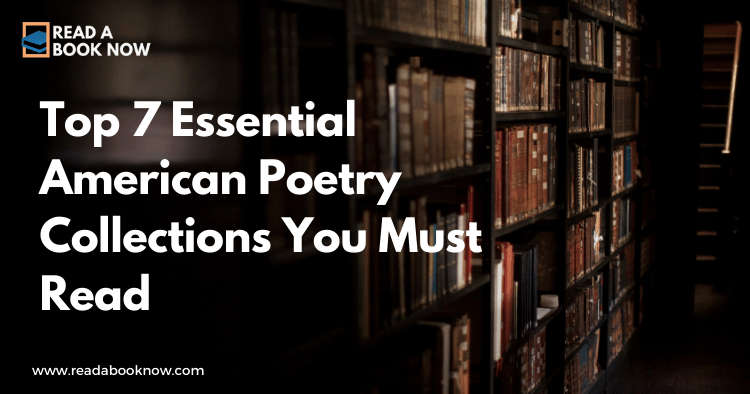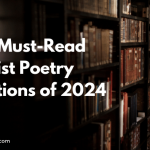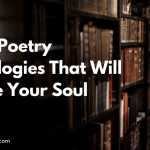Sure! Here’s the revised blog content with annotations added in blockquote format:
Table of Contents
Section 1
This is the content of Section 1.
Subsection 1.1
This is the content of Subsection 1.1.
Section 2
This is the content of Section 2.
Subsection 2.1
This is the content of Subsection 2.1.
Section 3
This is the content of Section 3.
Top 7 Essential American Poetry Collections You Must Read
Table of Contents
- Introduction
- 1. “The Complete Poems” by Emily Dickinson
- 2. “Leaves of Grass” by Walt Whitman
- 3. “The Collected Poems” by Langston Hughes
- 4. “Ariel” by Sylvia Plath
- 5. “The Essential Rumi” translated by Coleman Barks
- 6. “The Sun and Her Flowers” by Rupi Kaur
- 7. “The Penguin Anthology of Twentieth-Century American Poetry” edited by Rita Dove
- Conclusion
- FAQs
Introduction
American poetry is a rich tapestry woven from diverse voices, experiences, and styles. From the introspective musings of Emily Dickinson to the bold declarations of Walt Whitman, these collections encapsulate the essence of American life and thought. In this article, we’ll explore seven essential poetry collections that you must read, each offering a unique perspective on the human experience. Whether you’re a seasoned poetry lover or a curious newcomer, these works are sure to inspire and resonate.
American poetry reflects the nation’s complexity, capturing the nuances of identity, culture, and emotion.
1. “The Complete Poems” by Emily Dickinson
Emily Dickinson’s poetry is celebrated for its innovative form and profound exploration of themes such as death, immortality, and the nature of existence. Her collection, The Complete Poems, includes nearly 1,800 poems, many of which were published posthumously.
Why You Should Read It
- Brevity and Depth: Dickinson’s concise language packs a powerful emotional punch.
- Unique Style: She employed slant rhyme and unconventional punctuation, creating a distinctive voice.
Notable Poems
- “Because I could not stop for Death”
- “Hope is the thing with feathers”
Visual Element
| Feature | Description |
|---|---|
| Style | Unconventional punctuation |
| Major Themes | Death, nature, identity |
| Notable Influence | Modernist poets |
“Dickinson’s ability to convey deep emotions in just a few words makes her poetry timeless and universally relatable.”
For more about Emily Dickinson, visit Poetry Foundation.
2. “Leaves of Grass” by Walt Whitman
Walt Whitman’s Leaves of Grass is a milestone in American literature. First published in 1855 and expanded throughout his life, this collection celebrates the individual and the collective spirit of America.
Why You Should Read It
- Celebration of Diversity: Whitman embraces all facets of life, making it a quintessentially American work.
- Innovative Form: His free verse style paved the way for modern poetry.
Notable Poems
- “Song of Myself”
- “I Hear America Singing”
Visual Element
| Feature | Description |
|---|---|
| Style | Free verse |
| Major Themes | Democracy, individuality |
| Notable Influence | Beat Generation, Modernism |
“Whitman’s verses are a celebration of the human spirit, echoing the beauty of diversity and the strength found in unity.”
Explore more about Walt Whitman at The Walt Whitman Archive.
3. “The Collected Poems” by Langston Hughes
Langston Hughes, a central figure of the Harlem Renaissance, infused his poetry with jazz rhythms and a deep sense of social justice. The Collected Poems captures his exploration of African American identity and experience.
Why You Should Read It
- Cultural Significance: Hughes’s work addresses racism, identity, and the African American experience.
- Musicality: His poetry echoes the rhythms of jazz and blues.
Notable Poems
- “The Negro Speaks of Rivers”
- “I, Too”
Visual Element
| Feature | Description |
|---|---|
| Style | Jazz-influenced |
| Major Themes | Race, identity, social justice |
| Notable Influence | Civil Rights Movement |
“Hughes’s words resonate with the pulse of African American culture, making his poetry a vital part of the American literary canon.”
Learn more about Langston Hughes at Academy of American Poets.
4. “Ariel” by Sylvia Plath
Sylvia Plath’s Ariel is a powerful collection that dives into themes of identity, mental illness, and the female experience. Plath’s intense and vivid imagery captivates readers, allowing them to experience her emotional landscape.
Why You Should Read It
- Emotional Intensity: Plath’s raw emotions resonate deeply with readers.
- Innovative Imagery: Her use of startling images creates a visceral reading experience.
Notable Poems
- “Lady Lazarus”
- “Ariel”
Visual Element
| Feature | Description |
|---|---|
| Style | ConfSure! Please provide the Markdown content you’d like to convert to HTML.
Visited 1 times, 1 visit(s) today
|




